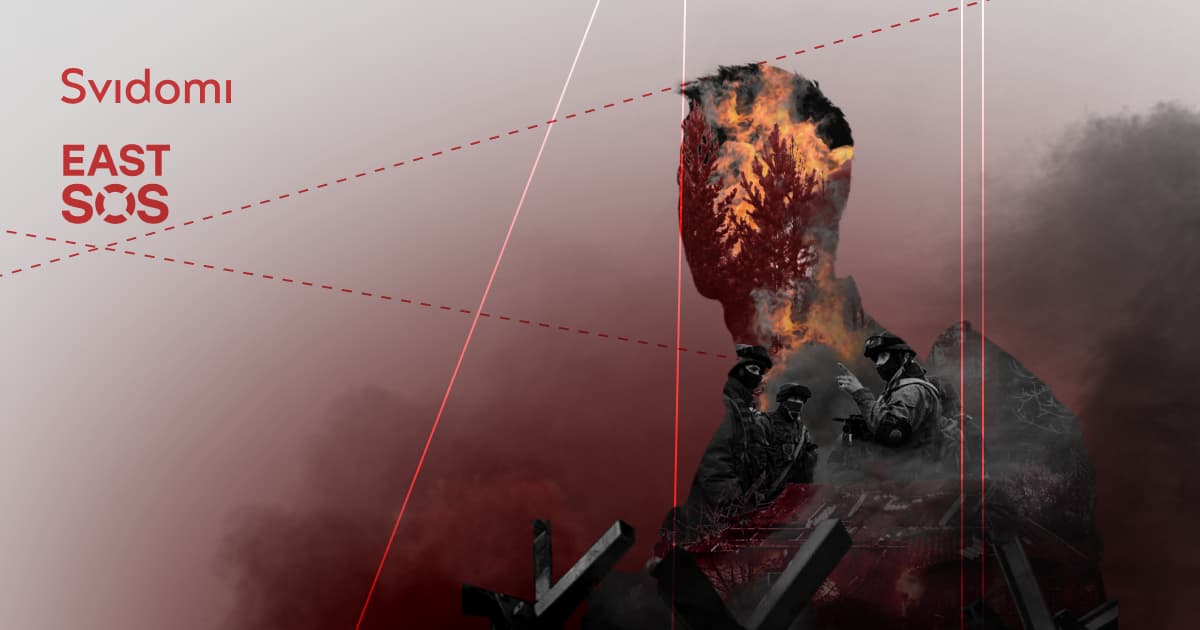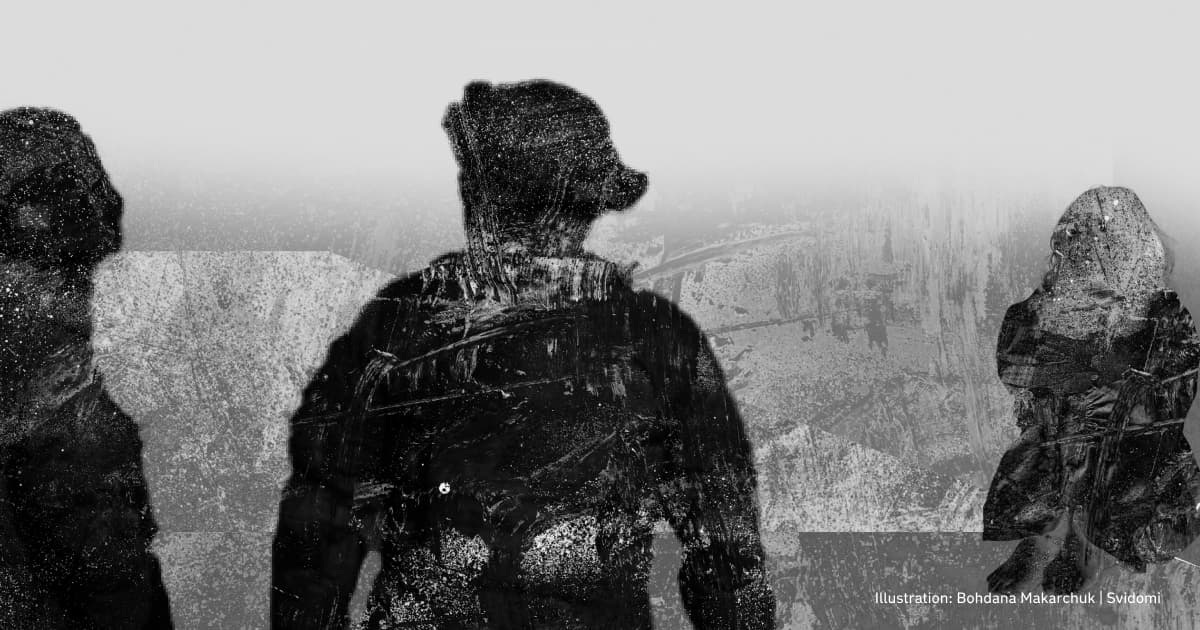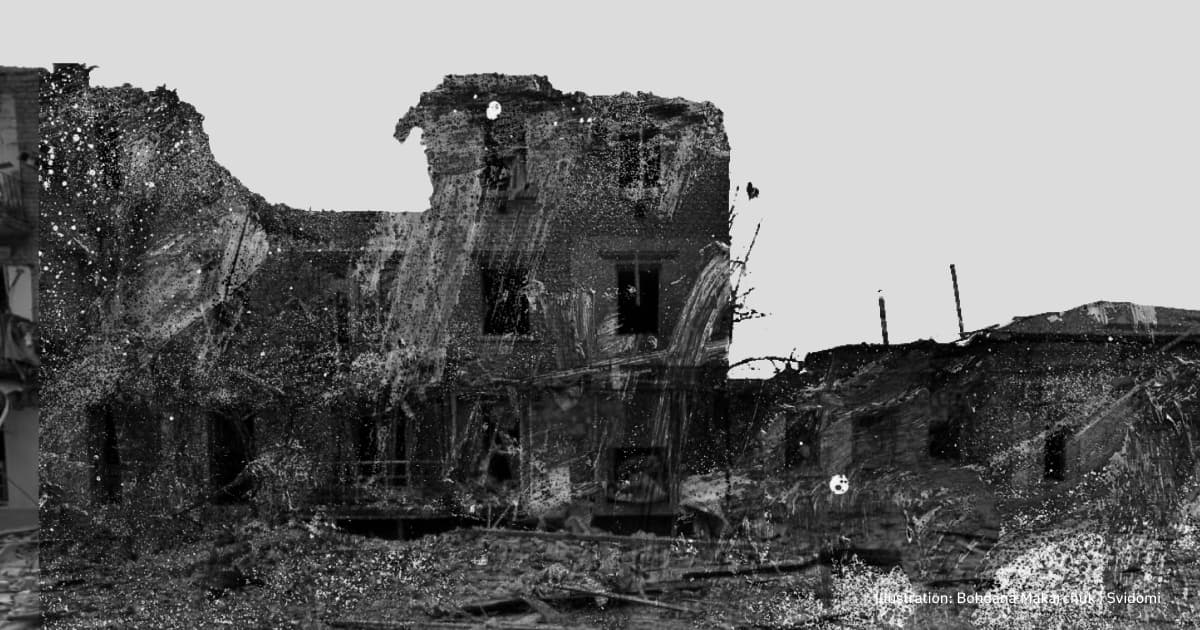The story of a student from the temporarily occupied territories: 'The Russians tortured me for 14 hours at the border'.
East SOS

Yevhen Stepanov (name changed for security reasons) was born in a village in the now temporarily occupied Kherson region and lived there for 18 years. Later, he entered college, danced, and played volleyball. Under the occupation, he started distance learning at the relocated Kherson University, and after moving to Ukraine-controlled territory, he began working as an animator.
Since 2014, the Charitable Organization "Charity Foundation "East-SOS" has been collecting information about war crimes committed by representatives of the Russian Federation to ensure justice and the right to truth. Olesia Honcharenko recorded the story, and Anton Litvinenko wrote the text.
Below is the first-person narrative
I was living in a dormitory. When I woke up on February 24, 2022, I saw a message from my teacher in which she wrote: "The full-scale war has started, stay at home, everything will be fine. There will be no classes today." A few days later, I went home. The village had not yet been occupied; the Russians arrived in tanks and armoured personnel carriers about a week later. I was in a bad mood, but at least my family was there. There was resistance; the Russians hung their flags, and our people took them down. Then they threatened us so that this would not happen again. On the first day, they talked to the village head, and two days later, he left because they threatened him.
Most of the occupants settled in the nearby forest. They burned half of the forest and simply seized the other half. They placed equipment and tents there. They also destroyed Oleshky's forests, built dugouts, and sold firewood to the locals at exorbitant prices, 3-4 times more expensive.

There have been cases of abductions, threats, and murders in the village. My sister's classmate was one of the victims. One of the collaborators snitched on her for supporting Ukraine. The Russians came in the afternoon and told her: "Pack up, we're leaving." They put a bag over her head and put her in an armoured personnel carrier. They took her to a field, removed the bag, and then interrogated her, shooting over her head. She didn't say anything, so they electrocuted her, harassing and touching her inappropriately... They offered her to rat out other pro-Ukrainians. She still remains there because she was given a notice that she cannot enter the territory of the Russian Federation for 50 years. And leaving is only possible through Russia; there is no other way.
I remember another story about a man. There were rumours that he was passing information about the positions of the Russian Federation to the Ukrainian military. A local collaborator, who had opened a shop in the village and was raising prices, snitched on him. The occupiers kidnapped the pro-Ukrainian man. He was missing for three weeks before he was found murdered near Skadovsk. He had been tortured to death, and his body was severely mutilated. His wife was also taken away... and they had children... A few weeks later, the Russians released his wife. She was alive, but they had tortured her too. I think she managed to flee.
They took many people to the cellar and returned them after a few days. There were many cellars in Kherson. There are also cellars in Hola Prystan and Oleshky, I know for sure. One man was taken away because he organised a watch in the village to prevent theft. A collaborator snitched on him. The man was taken away for a few days, and then he left. Fellow villagers said they had severely damaged his kidneys.
It is difficult to live under occupation, among other things, because the Russians constantly cut off the Internet and electricity. It was impossible to do anything, so I decided to leave. A bus picked me up, and we traveled through the Kherson and Zaporizhzhia regions, through Donetsk and Luhansk. From the Luhansk region, I crossed the border into the Voronezh region. I will remember Bugaevka for the rest of my life. They tortured me and electrocuted me for 14 hours there.
First, they took my fingerprints, photographed me from different angles, and gave me a form to fill out. It had a lot of questions, such as ‘Do you support the “special military operation”?’, ‘Do you support Putin?’, ‘Are you against Ukraine?’, ‘Do you have any connections with the Security Service of Ukraine?’ and ‘Do you have relatives in the military?’ They did not connect the phone to anything, checked it manually for a long time, and then said: ‘Where is your other phone? You've deleted everything! Where's the other phone you're using to rat us out?’ I proved that I didn't have another one. They turned my things upside down many times but found nothing.
During the first hours of interrogation, the Russians tried to get something out of me. They thought I was a partisan. They did not believe anything I told them. I spent 14 hours there, repeating everything 20 times, and they were already confused by my words. The occupiers were playing good cop and bad cop. The bad one electrocuted me, and I told the good one everything. They electrocuted my shoulder, ribs, and pelvis.

The next day, others came and beat me for no reason. They asked me if I was cooperating with the Security Service of Ukraine or the Armed Forces of Ukraine. I explained that I had never had such ties. The Russians electrocuted me again; all this was repeated 3-4 times, and then one of them said: ‘You will tell us the whole truth, or we will fry your balls.’
Fortunately, they let me through with a 50-year ban on return. The offer was as follows: ‘Either you leave now, or you go back to your parents because you won't see them again. You just won't come back here,’ and I agreed. Then we went to the Kolotylivka crossing point. There, I had to explain why I was not drafted into the army. I said that I was studying at the university, and students had a deferment.
Most of the villagers are waiting for the Armed Forces and de-occupation. Every day, there are fewer and fewer people — they evacuate because the conditions are extremely difficult. I understand them.
The article is a publication of the Charitable Organization "Charity Foundation "East-SOS" within the framework of the project "Support to war-affected vulnerable groups and residents of remote areas of Ukraine" with the financial support of the European Union. The contents are the sole responsibility of the Foundation and do not necessarily reflect the views of the EU.


